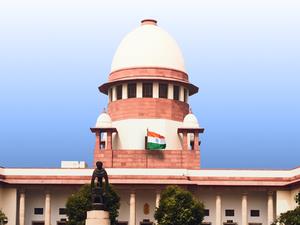
Supreme Court Flags ‘Untenable’ Prosecution For Abetting Suicide
"This Court has, over the last several decades, repeatedly reiterated the higher threshold, mandated by law for Section 306 IPC [Now Section 108 read with Section 45 of the Bharatiya Nyaya Sanhita, 2023] to be attracted. They, however, seem to have followed more in the breach. Section 306 IPC appears to be casually and too readily resorted to by the police,” it said.
The top court added that while the persons involved in genuine cases where the threshold is met should not be spared, the provision (penalising abetment of suicide) should not be deployed against individuals, only to assuage the immediate feelings of the distraught family of the deceased.
"It is time the investigating agencies are sensitised to the law laid down by this Court under Section 306 so that persons are not subjected to the abuse of process of a totally untenable prosecution. The trial courts also should exercise great caution and circumspection and should not adopt a play it safe syndrome by mechanically framing charges, even if the investigating agencies in a given case have shown utter disregard for the ingredients of Section 306," it further said.
A bench of Justices Abhay S Oka and KV Viswanathan was hearing a criminal appeal against a judgment of the Madhya Pradesh High Court declining to discharge the appellant from the offences punishable under Section 306 of the Indian Penal Code (IPC).
In February 2023, the trial court had framed charges after the suicide-note mentioned about the deceased being harassed by the appellant.
Apart from the suicide note, it further transpired that statements of witnesses were recorded to the effect that the deceased had been disturbed for the past few months and when asked he had mentioned to them that Mahendra Awase, the appellant, was harassing him with respect to repayment of a loan which one Ritesh Malakar had taken from Khargone's Shree Saakh Cooperative Society Limited.
The forensic laboratory had also confirmed certain audio recordings of the conversation between the deceased and the appellant. In its judgment, the Supreme Court said that to attract Section 306, the accused should have abetted the commission of a suicide.
It said: "A person abets the doing of a thing who first - instigates any person to do that thing or secondly - engages with one or more other person or persons in any conspiracy for the doing of that thing, if an act or illegal omission takes place in pursuance of that conspiracy, and in order to the doing of that thing or thirdly - intentionally aids, by any act or illegal omission, the doing of that thing.”
Referring to a previous judgement, it said, to bring out an offence under Section 306 IPC specific abetment as contemplated by Section 107 IPC (defining 'abetment of thing') on the part of the accused with an intention to bring about the suicide of the person concerned as a result of that abetment is required.
After perusal of the suicide note, the apex court said that the contents thereof revealed that the appellant was asking the deceased to repay the loan guaranteed by the deceased and advanced to Ritesh Malakar.
“It could not be said that the appellant, by performing his duty of realising outstanding loans at the behest of his employer can be said to have instigated the deceased to commit suicide. Equally so, with the transcripts. [E]ven taken literally, it could not be said that the appellant intended to instigate the commission of suicide. It could certainly not be said that the appellant, by his acts created circumstances which left the deceased with no other option except to commit suicide,” added the SC.
Further, it said that the telephonic exchanges with the deceased, albeit heated, are not with intent to leave the deceased with no other option but to commit suicide.
“The conduct of the proposed accused and the deceased, their interactions and conversations preceding the unfortunate death of the deceased should be approached from a practical point of view and not divorced from day-to-day realities of life. Hyperboles employed in exchanges should not, without anything more, be glorified as an instigation to commit suicide,” ruled the apex court.
Holding that the case against the appellant is groundless, it discharged the appellant and set aside the trial proceedings pending against him.

Legal Disclaimer:
MENAFN provides the information “as is” without warranty of any kind. We do not accept any responsibility or liability for the accuracy, content, images, videos, licenses, completeness, legality, or reliability of the information contained in this article. If you have any complaints or copyright issues related to this article, kindly contact the provider above.






















Comments
No comment